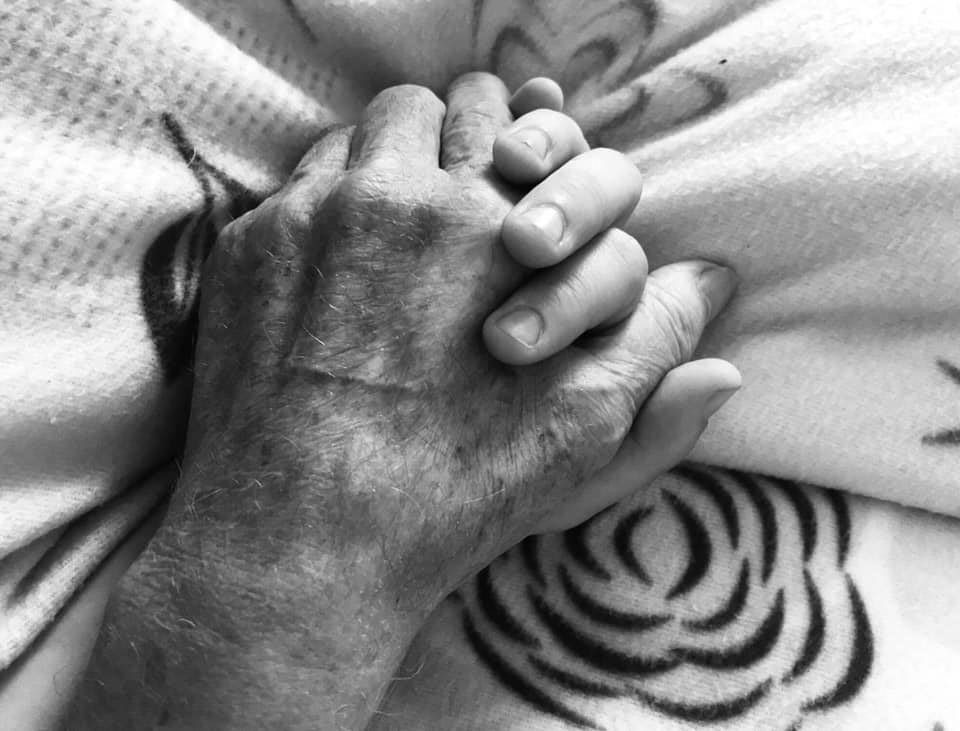
THERESA ZETTL
Family caregivers get little support during the Corona crisis. Yet it would be easy to help them.
Nursing care is a recent topic these days: intensive care beds in hospitals have to be cancelled because of a lack of nurses. There is a lot of discussion about the poor working conditions, the constant workload and the exhaustion of hospital staff. The nursing crisis has entered the public debate. At last, one might think, the problems are being put on the table. But that is only half the truth, because one area continues to be ignored: home care.
From my personal experience:
When my daughter was only 8 months old in 2014, my father suffered a stroke. As a stay-at-home mom for my baby, I also took care of my father. 2 years later in 2016, when I was about to return to my job because my daughter started going to kindergarten, my father had a massive brain hemorrhage. After he recovered the best possible way from surgery, I noticed some cognitive deficits and it turned out we are facing dementia. I decided to postpone my return to work and to give up my professional future and rather take care of my 78 year old father. Because who knew how much time we would still have together. In January 2019 we were faced with terminal pancreatic cancer and metastasis around the portal vein of the liver. By that time, after being 24/7 a family carer for 5 years and a single-mom, I spent many nights awake crying trying to push away the burn-out as far as I could, to completely focus on the care during the last months of my father. I took him home from hospital and got a crash-course by an ambulant palliative team on medication and what to expect and how to make my father’s last months as pleasurable and painfree as possible. I was there until his very last breath at home – not even 3 months after we received his cancer diagnose. After facing depression, I am still struggling to find my way back into worklife. And the pandemic definitely is no helper!
What I have experienced was that as a family carer, you are not taken seriously, whether by professional nurses or doctors. Your mental health suffers severely, but that is most likely not taken serious by yourself, because you want to offer the best possible care to your family member, trying not to show any weakness.
When looking into media, seeing how medical staff in hospitals is at their limit with the Covid-19 pandemic, we tend to forget family carers at home who support medical staff by not sending their family members into hospitals and care homes. Yet home care is not a niche issue. In Germany, around 3.3 million people require care at home. Eight out of ten people who need help and support in their daily lives, are cared for by relatives. By women, men and even children who are prepared to take on responsibility, who accept limits on their own lives, who put their needs on hold, who accept considerable financial losses – and thus help to keep our care system from collapsing. Not to mention that the government saves many billions of euros.
No relief, no recreation, no time-off
One might expect that these people would be generously supported, especially since the Corona pandemic has made care at home so much more difficult. Many professional facilities were closed for months, with consequences for care at home: care groups, respite services – all of these stopped for a long time or access was restricted. Care services could not and cannot guarantee that their staff are vaccinated. Who takes care of them instead? The relatives, who else. What does the state do? It increased the already low entitlement to time off from work with continued pay minimally from 10 to 20 days. But look out: anyone who stayed at home to care for a relative before the pandemic will have these days deducted. 20 days – X, for almost two years of pandemic. Imagine that!
Large corporations sent their employees on short-time work for months at the expense of the state and at the same time distributed profits. For working family caregivers, it became a teensy bit less complicated to take (family) care time. Mind you: unpaid!
There’s a claim, but not an offer…
This systematic disregard for home care during the pandemic is bad enough. But it’s compounded by another, structural problem: the shortage of professional caregivers means that support services are disappearing fast and on a massive scale. In some regions, it is now difficult to find a care service at all, with day and short-term care facilities having long waiting lists. As a result, people requiring care and their relatives, are faced with the paradoxical situation that they are, in theory, entitled to many services, but these entitlements are of no use if there are no places available in the facilities. One extreme example: the nursing care statistics show 260 night care places nationwide – with 3.31 million people in need of care living at home.
What’s more, the system of long-term care insurance is insanely complicated. You first have to get to know the many benefits with their different prerequisites. The bureaucratic requirements are high: here you can combine benefits, there you can offset them, you have to fill out forms, obtain certificates, meet deadlines and file appeals again and again. All of this is expected of people who care for a relative day after day, implement complicated medication plans, help with dressing, cook, listen, coordinate doctor’s visits, and take care of others. People who are sometimes challenged around the clock and haven’t slept through the night in years. How are they supposed to manage?
Caregiving makes poor
And if family carers manage to do so, because they reduce their paid employment or give up their job and focus entirely on care (like I did), there is a high risk of ending up in poverty. Care work is not financially rewarded in Germany. If things go badly, caregiving relatives end up on Hartz IV (social benefits for poor people). And given the fact how long the family care takes and when it eventually ends, it will get harder as a family carer to get back into your former job and life.

Be the first to comment